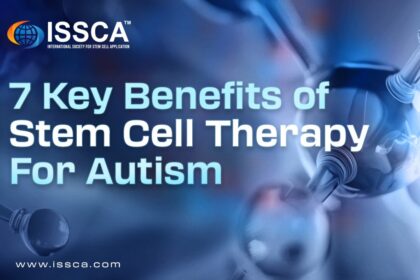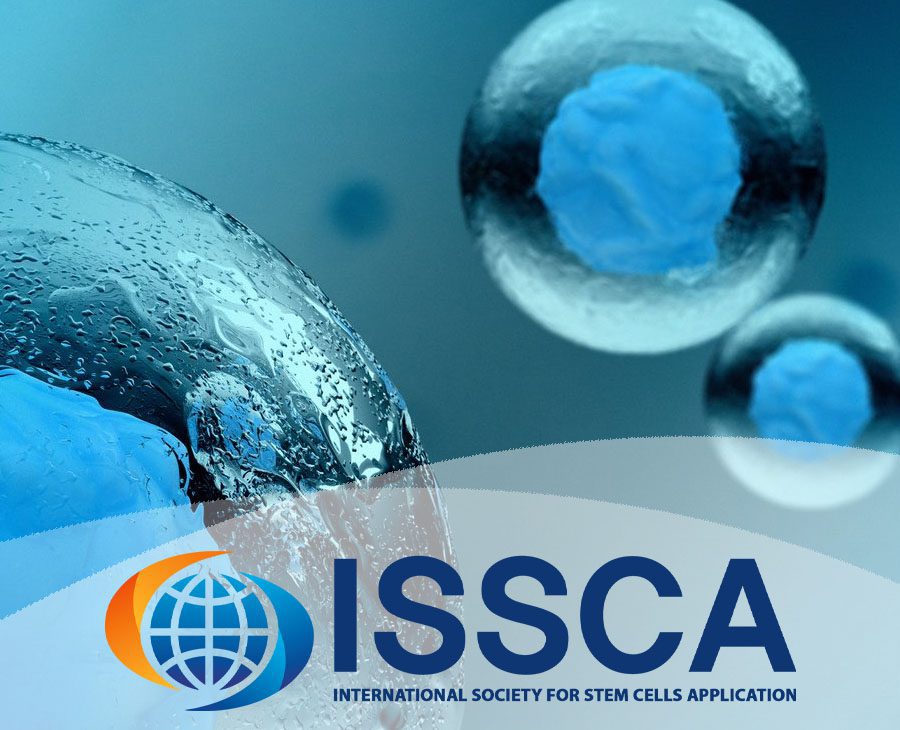
If your child or a loved one is struggling with autism, you are not alone – according to the Centres For Disease Control and Prevention, about 1 in 36 in the US are on the spectrum of autism, and it can impact anyone – occurring in all racial, ethnic, and socioeconomic groups.
For many years, autism has baffled scientists and doctors due to its complex nature and varied presentation, including unclear causes, and a wide spectrum of symptoms that affects people differently.
As a result, there have been many potential treatments on the market that promise improvement – from behavioral therapies and educational interventions to dietary changes, supplements, and alternative practices like music therapy, sensory integration, or equine-assisted therapy.
However, in most cases, these treatments only target surface-level symptoms of this condition, without addressing the deeper biological factors that can be contributing to it. This is where stem cell therapy comes in.
If you are not familiar with this treatment, don’t worry – continue reading as we will discuss all the benefits of stem cell therapy for autism, how it works, and where you can get it:
What Is Stem Cell Therapy For Autism?
So, what exactly is stem cell therapy for autism, and how does it work to address symptoms beyond surface level?
Stem cell therapy is a groundbreaking approach in regenerative medicine that leverages the unique regenerative and immune-modulating properties of stem cells to improve neurological function, and reduce inflammation in the brain.
By introducing Mesenchymal Stem Cells (MSCs) from sources like umbilical cord tissue or bone marrow through injections in the body, this treatment targets the areas that are believed to be the biggest contributors for this condition – chronic brain inflammation, immune system dysregulation, oxidative stress, and impaired neural connectivity.
This translates to many benefits of stem cell therapy for autism – from supporting neural repair to improving signaling between brain cells and overall brain connectivity. But let’s take a deeper look:
What Are The Benefits of Stem Cell Therapy For Autism?
1. Stem Cells Have Anti-Inflammatory & Immunomodulatory Effects
While autism is not entirely understood, there is evidence that inflammation within the brain and spinal cord plays a role when it comes to the development of this neurodevelopmental condition.
According to a study conducted by the University of Maryland School of Medicine, severe inflammation in early childhood can alter the development of vulnerable brain cells, potentially leading to neurodevelopmental disorders such as autism.
More specifically, studies have shown that many individuals with this condition exhibit elevated levels of pro-inflammatory cytokines, such as interleukin-6 (IL-6), tumor necrosis factor-alpha (TNF-α), and others, as well as more oxidative stress.
So, where do stem cells come in this equation?
Among the main benefits of stem cell therapy for autism is that this treatment has anti-inflammatory and immunomodulatory effects. By secreting anti-inflammatory cytokines like IL-10 and TGF-β, stem cells help suppress inflammation and restore immune balance.
In addition, Mesenchymal Stem Cells help protect neurons from damage, improving the brain’s ability to rewire and adapt. As a result, you can expect to see a more stabilized brain function, better behavioral regulation, as well as enhanced cognitive development.
Put simply, one of the biggest benefits of stem cell therapy for autism is that it removes a key roadblock in the internal environment of the brain, which can give your loved one a better foundation for growth and function.
2. Stem Cell Therapy Can Help Improve Communication and Speech
Speaking of the benefits of stem cell therapy for autism, we can’t forget to mention improved communication and speech, which is a common symptom among people with ASD – in fact, according to the National Institute of Health, 3 out of 4 children show some impaired language abilities by the time they enter kindergarten.
In addition, nearly 1 in 12 (7.7%) U.S. children ages 3-17 has had a disorder related to voice, speech, language, or swallowing, which shows just how widespread communication challenges are when it comes to autism.
Stem cell therapy helps improve communication and speech by addressing the underlying biological factors that may be interfering with brain regions responsible for language development and processing.
Rather than simply focusing on outward symptoms, this therapy works on a deeper level to support the brain’s natural ability to heal and function more effectively.
3. You Will Notice Improved Social Interaction
Social interaction is another aspect of autism that many parents and children have to struggle with – in ASD individuals, challenges in this area often stem from differences in how the brain processes social cues, such as facial expressions, body language, tone of voice, and even the rhythm of conversation.
As a result, children with autism may struggle to initiate or maintain eye contact, engage in back-and-forth conversations, understand personal space, or interpret the emotions and intentions of others.
Among the benefits of stem cell therapy for autism is improved social interaction – you will notice that aspects such as eye contact, engagement, emotional connection, and responsiveness are improving throughout the course of the treatment.
4. Stem Cell Treatment Contribute to Enhanced Focus & Attention
Another important aspect when it comes to the benefits of stem cell therapy for autism is focus and attention, which can be a challenge in individuals on the spectrum.
What we commonly see is that they:
- Tend to be more distracted by external stimuli
- Have short periods of sustained attention during schoolwork or play
- Exhibit impulsive behaviors, such as interrupting
- Have difficulties following multi-step instructions effectively
- Can be anxious and alert
Stem cell therapies help improve focus and attention by regulating brain chemistry through immune modulation and inflammatory signals. They also reduce oxidative stress, effectively neutralizing free radicals and repairing oxidative damage in the brain.
The result is improved cellular energy and cognitive function, which positively impacts the ability of the brain to process information and filter distractions.
5. Repetitive Behaviors Become Less Frequent
One of the most notable symptoms in autism is the presence of obsessive or repetitive behaviors – such as hand-flapping, rocking back and forth, or spinning objects.
They are thoughts to arise from neurological imbalances that affect how the brain processes sensory input, emotional regulation and executive functioning. Unfortunately, these behaviors can significantly interfere with daily functions.
With this being said, among the key benefits of stem cell therapy for autism is reducing the frequency of these repetitive behaviors. Stem cell treatments impact positively on the:
- Disrupted connectivity between the prefrontal cortex and other brain regions
- Imbalance in neurotransmitters like dopamine and glutamate
- Heightened sensory processing
- Chronic brain inflammation
This treatment helps stabilize the neural circuits in the brain, and also aids with calming overactive brain regions associated with these patterns.
6. Stem Cell Therapy Supports Gut-Brain Axis Health
Among the main benefits of stem cell therapy for autism is that it supports gut-brain axis health. A lot of individuals on the spectrum experience gastrointestinal issues, including chronic constipation, diarrhea, bloating, abdominal pain, and food sensitivities.
Stem cell treatments can reduce inflammation in the gut lining, helping to heal intestinal issues and restore normal digestive function. In addition, they may reduce allergic reactions and food sensitivities by calming an overactive immune response.
Last but not least, among the benefits of stem cell therapy for autism is that it can help create an environment in which beneficial gut bacteria can flourish. This improves the microbiome balance, supporting better digestion, mood, and behavior.
7. Stem Cells Have Long-Term Neuroprotective Effects
Did you know that stem cells also have long-term neuroprotective effects? That’s one of the benefits of stem cell therapy for autism that isn’t talked about enough.
Because stem cells support cellular repair and regeneration, there is potential for long-term benefits beyond symptom management – helping to create a healthier, more balanced environment within the brain for continued development.
Stem cell therapy for autism offers a promising and innovative approach that goes beyond managing surface-level symptoms. By targeting the underlying biological factors such as chronic brain inflammation, immune dysregulation, oxidative stress, and impaired connectivity, this therapy may help improve core challenges of autism — including communication, social interaction, focus, and repetitive behaviors.
Additionally, its potential to support gut-brain health and offer long-term neuroprotective effects makes it a compelling option for families exploring complementary treatments.
While more large-scale clinical studies are needed to fully confirm its efficacy and long-term safety, early research and patient outcomes suggest that stem cell therapy could provide meaningful improvements in quality of life for individuals on the autism spectrum. As always, it’s essential to consult with experienced medical professionals to determine whether this therapy is appropriate for your loved one’s unique needs.




